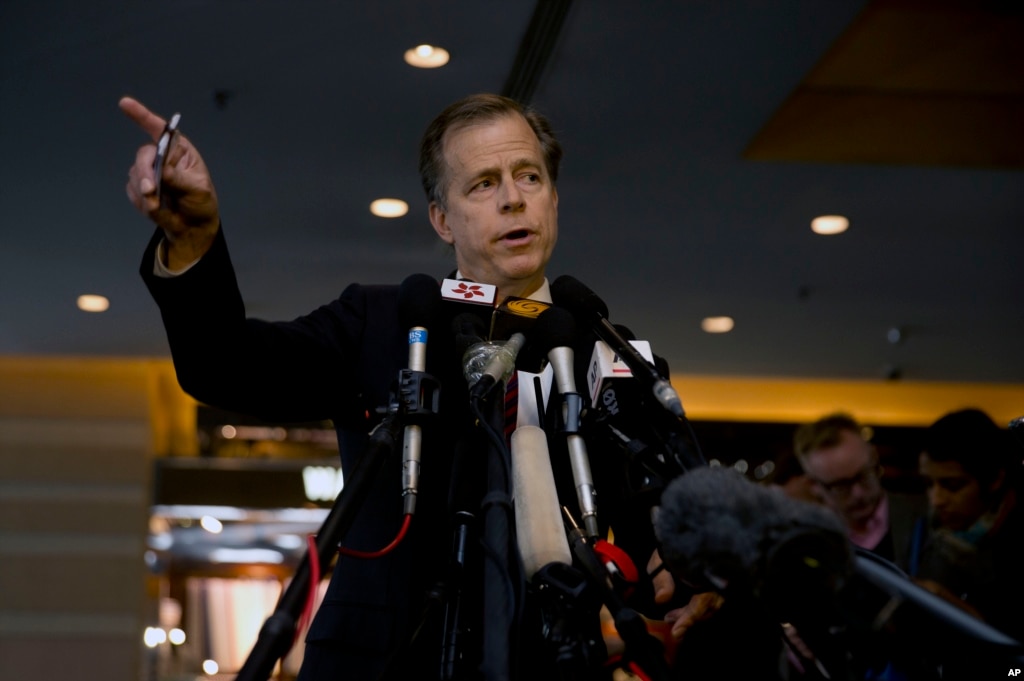By Brian Lanciault
Impunity Watch Reporter, Asia
BANGKOK, Thailand–Protesters have gathered in an attempt to topple Thailand’s prime minister. A march was held in Bangkok on Tuesday to rally support for their plans to bring the capital to a halt next week by blockading major roads and preventing the government from functioning.
Prime Minister Yingluck Shinawatra has announced an election for February 2. Protesters, aware she would probably win with support in the rural north and northeast, want her to step down, seeking to replace her with an appointed “people’s council” to push through electoral reforms.
Protesters accused Yingluck of being a puppet of her self-exiled brother and former premier, Thaksin Shinawatra, a man they say is a corrupt capitalist who used taxpaye money to buy electoral support with expensive populist giveaways.
The anti-government push is intended to block an election that looks increasingly uncertain. The government’s supporters fear that if protests fail to halt the poll, chaos or violence could erupt and arouse an intervention by either the military or the judiciary.
That prospect became more of a possibility on Tuesday when the National Counter-Corruption Commission lodged charges against 308 former lawmakers, mostly from Yingluck’s Puea Thai Party, for trying to change the constitution to make the Senate a fully elected chamber.
The Constitutional Court ruled the amendment illegal in November.The residual effect of a court ruling against those politicians (not including Yingluck) is not clear, but it could complicate the election, either before or after it takes place.
Puea Thai adviser Prompong Nopparit shrugged off the charges but questioned the timing of the NCCC’s decision to pursue them.
“I’m very curious to know why older legal cases concerning opposition lawmakers still haven’t moved forward, but charges against the government side have been rushed,” he told reporters.
The refusal by the army’s top general to rule out military intervention also puts Yingluck in a precarious position. Top officers are notably close to the royalist establishment that backs the protests and engineered the overthrow of Thaksin in a 2006 coup, one of 18 successful or attempted overthrows in the past 81 years.
Fears of another coup grew this week when tanks and other military equipment were moved into Bangkok in preparation for an Army Day parade on January 18. Army chief Prayuth Chan-ocha says he wants to keep the military above the fray but some of his recent comments have been ambiguous, including those he made on Tuesday.
“Don’t be afraid of things that haven’t yet happened,” he said when asked about a coup. “But if they happen, don’t be frightened. There are rumors like this every year.”
Yingluck threatened that military intervention would be a big mistake.
“We’ve learned from the past that no good comes from coups,” she told reporters. “I’d prefer to see a long-term solution … one that is accepted by the international community.”
Yingluck has refused to postpone the poll, a move that she says would be unconstitutional. Any delay would not only expose her to more criticism, but make it hard to run the country as her caretaker administration is not permitted to make policy decisions that commit the next government.
Several thousand demonstrators, determined to undermine her legitimacy, marched from Bangkok’s historic quarter across the river and back, avoiding the center of the city.
The protests have drawn 200,000 people at their peak and have been largely passive, although violence ensued between police and demonstrators outside an election registration building on December 26. Numerous people were wounded and several were shot by unknown gunmen. Four people, including two police officers, died from the shootings.
Authorities anticipate massive crowds, and have deployed 20,000 police, backed up by troops, for the first day of the planned “shutdown” on Monday.
For more information, please see:
Reuters–Thai anti-corruption body charges members of PM’s party–7 January, 2014
Voice of America–Thai Opposition Protesters Rally Support for ‘Bangkok Shutdown’–7 January 2014
Straits Times–Thailand’s anti-corruption body to charge Puea Thai politicians, but Yingluck in the clear–7 January 2014
Al Jazeera–Thai anti-government protesters march again–5 January 2014


